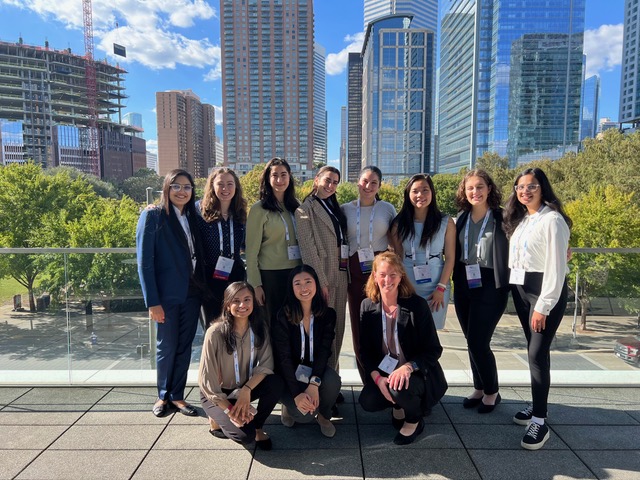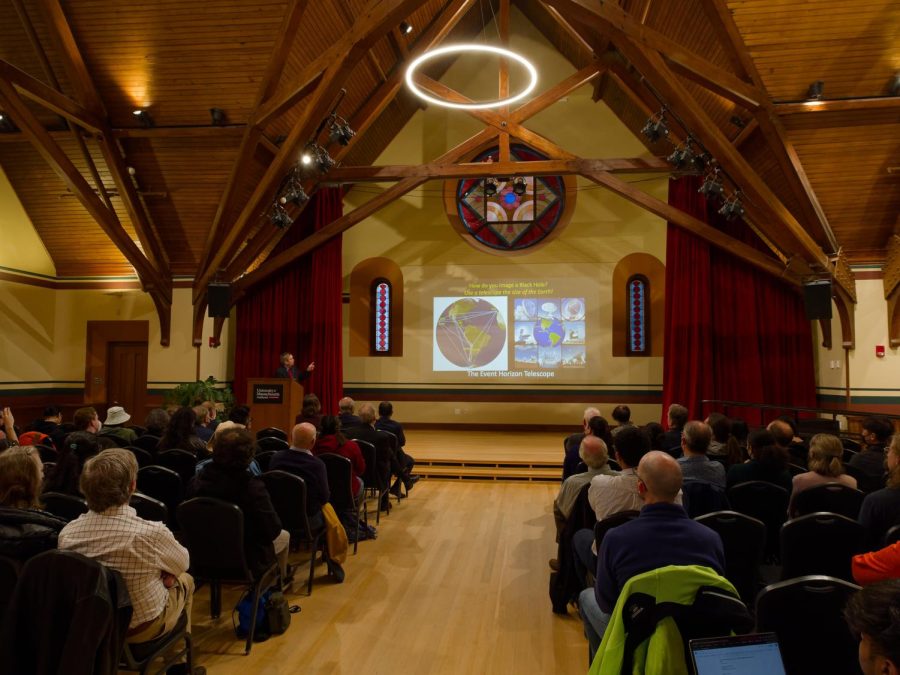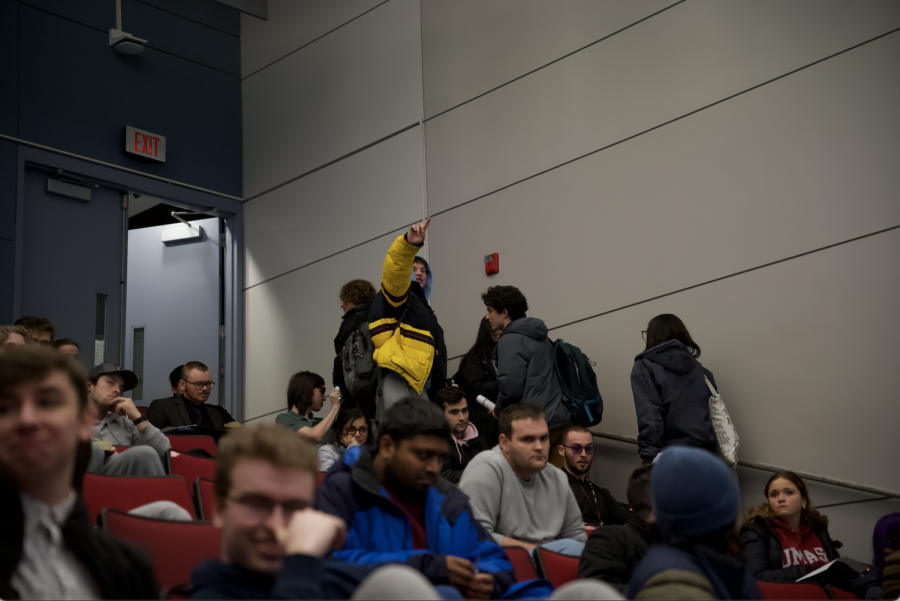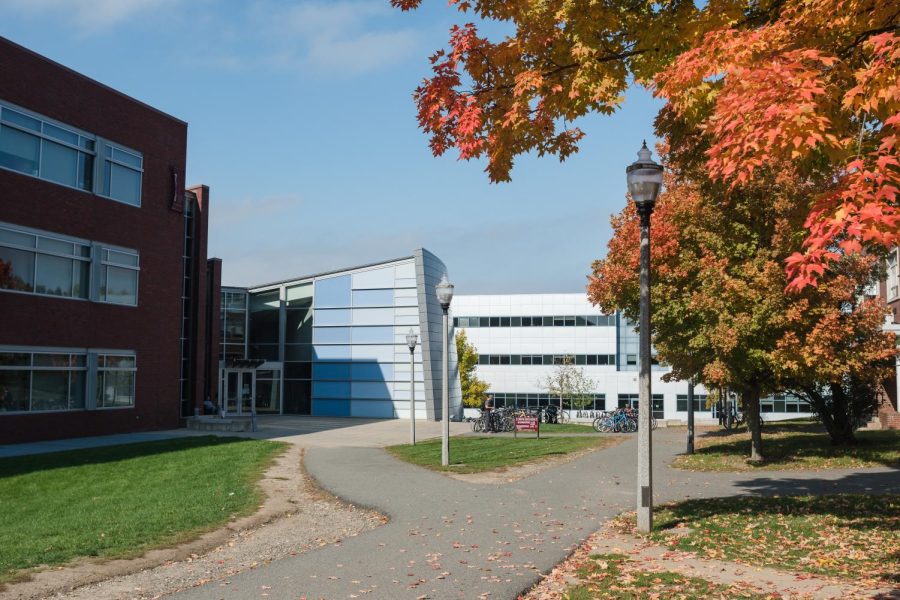University of Massachusetts students piled into the Integrated Learning Center for the second annual HackUMass hackathon this past Saturday.
HackUMass is a free, 36-hour coding conference where participants design, create and execute original ideas through software and hardware projects.
Last year’s inaugural event attracted about 100 people and focused on hardware creations like a robotic arm. But this year, an estimated 500 people gathered from across Massachusetts and surrounding states to collaborate in teams or individually on projects using both hardware and software.
After the opening ceremony in the Student Union Ballroom, an “idea jam” was held where organizers helped individuals form groups.
That’s where Luke Leonard, 14, of Amherst, Trevor Campbell, a freshman chemical engineering major, Charles Husselbee, a junior accounting major, Jared Rand, an MBA student at UMass and Jari Roznovjak, a Clark University student studying abroad from the Czech Republic, met.
They decided to work on a project dubbed “Tinder for tutors” by Rand, who runs a tutoring website already.
The project’s concept was that a parent or student can add filters to the kind of tutor they are looking for, designating experience, price and more. Resulting tutors will appear one at a time like on the dating app Tinder and the user can swipe right or left indicating their interest.
Using languages like PHP, JavaScript, HTML, CSS and MySQL meant the team had difficulty getting data to communicate back and forth, according to Rand.
“With web programming, we have five different languages and you have to code in each different one and communicate different things and in that sense it’s complicated and we’ve been struggling to wrap our minds around the process of communicating the data back and forth,” Rand said.
Each of the participants’ motivations were firmly grounded in fun and gaining experience.
Husselbee said, “(I wanted) to step out of my boundaries and my comfort zones and I found that with this group of young bright minds … I have been able to have a successful time trying to incorporate new skills and actually using it in a practical basis.”
Husselbee, Campbell and Leonard didn’t have experience with coding prior to the event and all said learning it was difficult but rewarding.
“We just want to chill out and learn new stuff and meet new people,” Roznovjak said.
Familiar friends
Many of the event’s attendees came from outside UMass, traveling from Boston by bus.
Three sophomore Northeastern University friends – Tiffney Kitiratanasumpun, a computer science and mathematics major, Ryan Aljondi, a computer science major and Mark Turner, a computer engineering major – all heard about the event from other friends.
Aljondi and Turner were working together on a website which would allow users to upload songs and create corresponding light shows. Aljondi said he came up with the idea last year when he decided to throw a party and had the necessary accessories except for lights.
“I had the music, the alcohol, the people who would dance but I didn’t have lights,” he said. “I looked at how other people did it and it’s thousands upon thousands of dollars and I don’t have that money and I didn’t want to bother with it. So I thought I could kind of make it myself.”
Aljondi and Turner said they ran into problems, however, when they realized they did not know enough programming.
Meanwhile, Kitiratanasumpun said she was working on a far less ambitious project in which she was trying to create automated computer-generated geometric art like colorful triangles and tessellated shapes.
The next day, Kitiratanasumpun said she abandoned the project in order to make a different one involving an alarm clock that would automatically show kittens when going off.
The appeal of a hackathon for Kitiratanasumpun, Aljondi and Turner also had to do with the fun aspects of the experience.
“Besides being somewhere where I can focus on something and get in the zone, everybody is kind of like-minded so it’s easy to connect with people,” Kitiratanasumpun said. “I just like new things, trying new places trying new stuff. I feel like hackathons are like hammocks, once you’re in it you kind of don’t want to leave and it’s also super fun.”
Turner added, “I’m here because I wanted to try it out. I thought it was interesting. I haven’t been together with this many people to do the same thing.”
Organization
The hackathon is still a fairly new concept, coming into the mainstream in 1999 when OpenBSD in Calgary and a Sun Microsystem JavaOne Conference in San Francsico held them almost simultaneously, according to South by Southwest’s website.
The site also said since then, hackathons have branched out into several types with some devoted to startups, brands, competitive communities and other non-technical hacks.
HackUMass began last year with Andrew Sousa, a senior studying electrical engineering.
This year’s event was organized primarily by Michaela Shtilman-Minkin, the head coordinator, Leo Lin, sponsor coordinator, J.C. Davis, head of logistics, Amanda Pellerite, head of public relations and Kaitlin Menzie and Sean Luo as heads of website and app development.
HackUMass partnered with Major League Hacking, the official student hackathon league to organize the event.
“We really wanted to ramp it up,” Davis said. “We felt the first HackUMass was a great success and there’s no reason we can’t put on a great event that rivals the huge name-brand hackathons across the country”
However, the goals for this year were still firmly rooted in fun and experience, Pellerite said.
“I hope it encourages beginners to keeping working on their projects in their free time and hopefully people who already know what they are doing will also learn something,” she said.
This year’s prizes included eight different sponsored awards from IBM, TripAdvisor, Indico, Google and more.
UMass Dining gave an award to the hack related to instant customer feedback and interaction.
HackUMass also had prizes for eight finalist teams, with each member receiving a Nvidia Shield, and three champion prizes, with each team member receiving a Myo and Pebble Steel smartwatch.
But beyond prizes and learning experience, there was an opportunity for participants to interact with sponsors and network.
Sérgio Cunha, a UMass alum who was representing Verizon and helped organize last year’s event when he was a student, said hackathons are a great way to recruit potential interns and employees.
“Verizon is at UMass for every career fair and honestly I feel like going to a hackathon is probably a better way to see how students actually work and what they can do,” he said.
There were many winners at the closing ceremony on Sunday, with some groups winning multiple awards.
The three “champions” from the finalist roundup were RoboCop, a silent app to alert the police by an automated phone call, PowerGlove 2.0, which charts the flexibility of hand and finger movements for those with arthritis, and Surround, a music app that collects music playing in your area.
Emma Sandler can be reached at [email protected].
Correction: A previous version of this article incorrectly reported there were four “champions” in the finalist round, including WiZer, an open-source website. WiZer was not named a champion.


















